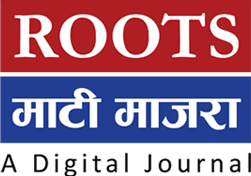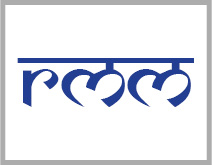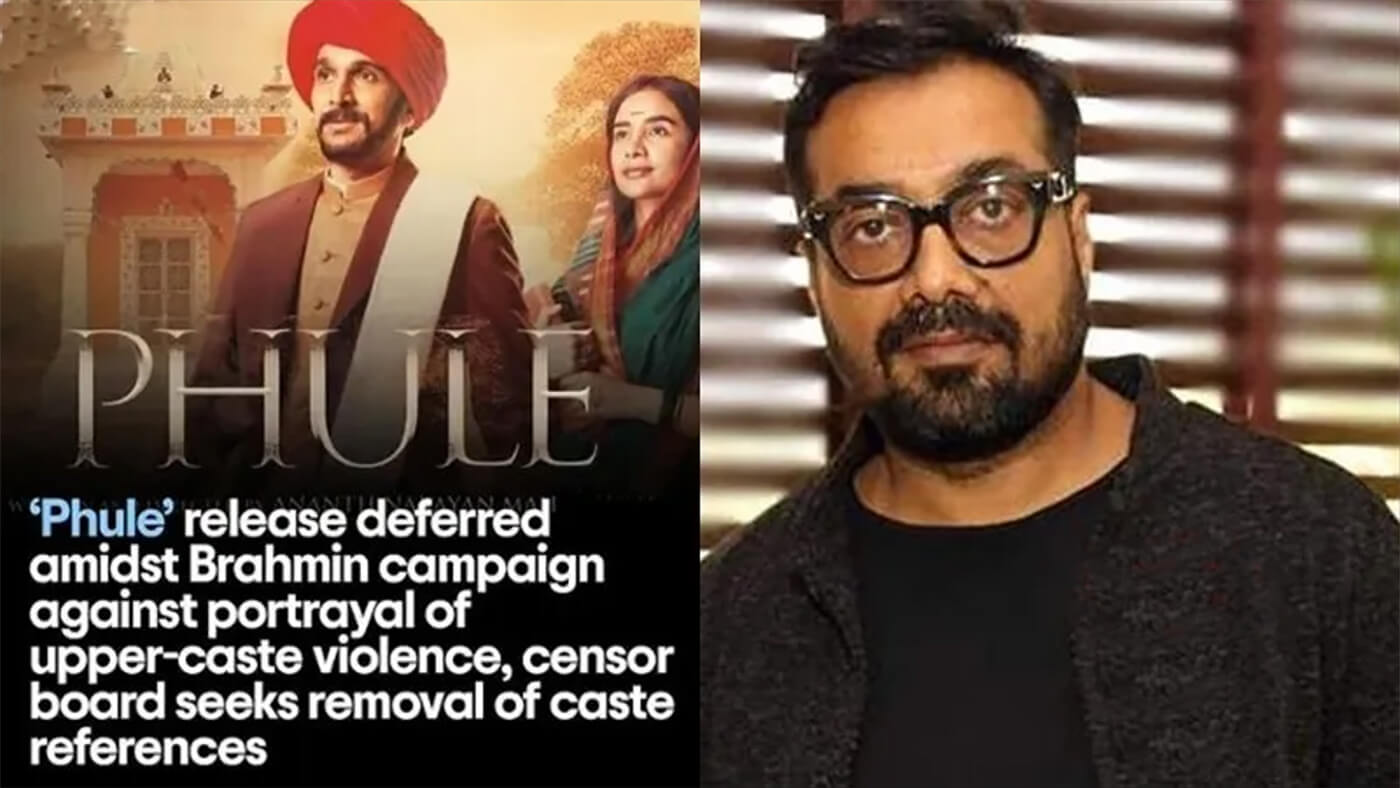A bio pic film on Jyotirao Phule,of 19th century has created a hornet nest , with government controlled censorship to various caste groups reacting sharply on caste lines.
The reformist who has provoked such a sharp response is Jyotirao Phule (11 April 1827 – 28 November 1890), also known as Jyotiba Phule, was an Indian social activist, businessman, anti-caste social reformer and writer from Maharashtra.
His work extended to many fields, including eradication of untouchability and the caste system and for his efforts in educating women and oppressed caste people. He and his wife, Savitribai Phule, were pioneers of women’s education in India. Phule started his first school for girls in 1848 in Pune at Tatyasaheb Bhide’s residence or Bhidewada. He, along with his followers, formed the Satyashodhak Samaj (Society of Truth Seekers) to attain equal rights for people from lower castes. People from all religions and castes could become a part of this association which worked for the upliftment of the oppressed classes.
Phule is regarded as an important figure in the social reform movement in Maharashtra. The honorific Mahātmā (Sanskrit: “great-souled”, “venerable”), was first applied to him in 1888 at a special program honoring him in Mumbai.
Phule is Indian Hindi-language Biographical film directed by Ananth Mahadevan and produced by Dancing Shiva Films Kingsmen Productions Films and Zee Studios. The film is based on the lives of Jyotirao Phule and Savitribai Phule. The film stars Pratik Gandhi and Patralekha in titular roles. The film was scheduled to release on 11 April 2025
Director Ananth Mahadevan, spoke about the controversy. In an interview recently, the director underscored the existence of the issues that his film highlights – caste and gender discrimination.
‘Phule’, starring Pratik Gandhi and Patralekhaa, shows the couple’s fight against caste-based discrimination to demand equal rights to education for women. A few Brahmin groups have objected to the film’s content, leading to the postponement of its release.
Filmmaker Anurag Kashyap blasted the CBFC and India’s casteist censorship after the movie Phule ran into trouble—ironically, for showing caste discrimination in a film about anti-caste reformers.
The movie, about Jyotirao and Savitribai Phule, was supposed to come out April 11, 2025. But some Brahmin groups complained about the trailer, saying it insulted their community. And the CBFC, instead of defending artistic truth, totally caved:
- Made them remove words like “Mang”, “Mahar”, “Peshwai”
- Changed “3,000 saal purani ghulami” to “kai saal purani ghulami”
Director Ananth Mahadevan, whose latest film ‘Phule’ has upset a section of the audience, spoke about the controversy. In an interview recently, the director underscored the existence of the issues that his film highlights – caste and gender discrimination.
‘Phule’, starring Pratik Gandhi and Patralekhaa, shows the couple’s fight against caste-based discrimination to demand equal rights to education for women. A few Brahmin groups have objected to the film’s content, leading to the postponement of its release.
Ananth when asked if there was a solution to the “issue of people jumping the gun” without knowing something in its entirety. He replied, “I don’t think so. Not even in the future, because we are an immature society. This comes forth either through some unnecessary prejudices or provocations or whatever, but we do not seem to have progressed. In fact, we seem to have regressed in many ways…caste discrimination and gender discrimination continue to plague our society…We are still so self-centred and materialistic. Technological advancements do not cover up your social regressions.”
The filmmaker was critical of the censorboard who suggested a series of cuts in the film. “I am quite amused at these things, because it was not something so major to be labelled fair or unfair. As a filmmaker, I would not like my film to be touched, and that too with such insignificant and innocuous changes. I don’t understand why we are so nervous about how people will react, or how sensitive they are. I think we should respect the sensibilities and the sensitivities of the audience. This film does not exaggerate or fictionalise history.”
The controversy engulfed ever articulate rebel filmmaker Anurag Kashyap too, when he responded to an online response. He was critical of the CBFC and the Brahmins on the reported censorship of the film. A person had commented saying that “Brahmins are your father”. Replying to it, Anurag had written, “Brahmin pe main m*******a..koi problem (I’ll pee on the Brahmins…any problem)?. The caste groups were quick to register cases against Kashyap in many parts of the country to entangle him in legal mess.
In a post Kashyap wrote as follows: “Bhai agar casteism nahin hota is desh mein toh unko kya zaroorat thi ladne ki. Ab ye Brahmin log ko sharam aa rahi hai ya wo sharam mein mare ja rahe hain ya phir ek alag Brahmin Bharat mein jee rahe hain jo hum dekh nahin paa rahe hain, ch****a kaun hai koi to samjhave (If casteism didn’t exist in this country, why would they have needed to fight against it? Now these Brahmin groups either feel ashamed, are dying of shame, or perhaps they’re living in some alternate Brahmin-only India that we’re unable to see. Someone please explain—who’s the real fool here?)”
A part of his post read, “In anger, while replying to someone, I forgot my limits. And I spoke badly about the entire Brahmin community. Those communities, whose many people have been in my life, are still there and contribute a lot. Today, all of them are hurt by me. My family is hurt by me. Many intellectuals, whom I respect, are hurt by my anger and my way of speaking.” The director further said that he will not let this happen again and will work on his anger.
Clearly, even historic personalities who fought against social evils are a hot potato these days. Unless one burns the fingers there is no way one can handle these personalities in any medium, as people have increasingly polarized on sectarian grounds.




